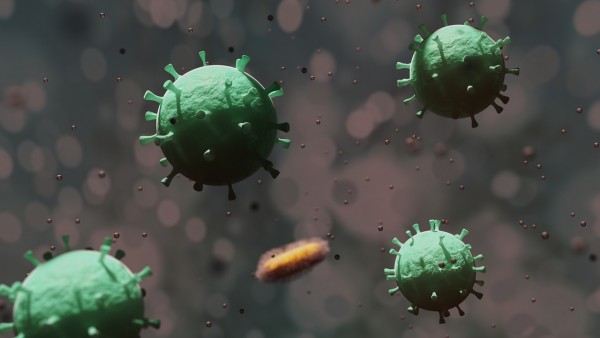Here's Why You Need a Flu Shot, and Why You Don't Feel Well Immediately After Vaccination
NBC News medical correspondent Dr. John Torres says that this could be a bad flu season, and everybody should be prepared for it, especially children.
It's more important than ever to get a flu vaccine shot this year as experts warn about a looming "twindemic" with a surge in COVID-19 cases during a bad flu season.
The Center for Disease Control and Prevention recommended children of 6 months and above to get their flu vaccines every year. The reason for this is because the immune protection of a person from vaccination declines over time.
Yearly vaccination is needed to get the best protection against the flu. And because flu viruses are continuously evolving, the vaccine composition is being reviewed and updated each year, depending on which influenza viruses are making people sick. However, due to many misconceptions about the flu vaccine, many parents are still skeptical about their children getting flu shots, believing that flu vaccine can give you flu.
READ MORE: Study Reveals Probiotic Therapy Helps Relieve Eczema
Dr. William Schaffner, a specialist in infectious disease and a professor of preventive medicine at Vanderbilt University in Nashville, stressed that it is biologically impossible to catch the flu from getting vaccinated.
According to the Centers for Disease Control and Prevention, flu vaccines are made with either inactivated viruses or with a couple of proteins from that dead virus, which will not cause illness.
These proteins are obtained from the surface of the killed virus, just enough to trigger an immune system response and give it a clear target. But since no one is getting injected with the complete virus, it is not enough for the flu virus to reconstitute itself in the body.
Why People Don't Feel Well After Getting a Vaccine
Some people reported mild symptoms after getting a flu shot. Common side effects may include redness or swelling in the area of vaccination. Some people mistakenly assume that the symptoms they develop are a side-effect of the vaccine, but which coincidentally happened around the time they got the shot.
According to Schaffner, just because the symptoms happen at the same time does not mean that they are connected.
When and where you took the flu shot are also factors that contribute to the symptoms.
Dr. Michael Ison, professor at Northwestern University's Feinberg School of Medicine in Chicago, under the infectious diseases division, said that most people get their flu shot during the fall. This is the time when most rhinoviruses are circulating, which increases your risk of acquiring cold viruses.
Dr. Richard Zimmerman, a professor of family medicine at the University of Pittsburgh, said that going to the clinic or pharmacy to get the shot means being exposed to people who may have an illness. We should be mindful if they are coughing as the risk of getting infected with the cold virus is also high.
The flu vaccine's effectiveness does not reach its full potential until two to three weeks after the vaccination. It is best to get vaccinated right away as this is a safe and inexpensive way to stay healthy, especially during COVID-19 season.
FURTHER READING: Paracetamol Is No Longer Just for Pain, It's for the Psyche Too
Check out more news and information on Vaccination on MD News Daily.
Sep 10, 2020 10:15 PM EDT






